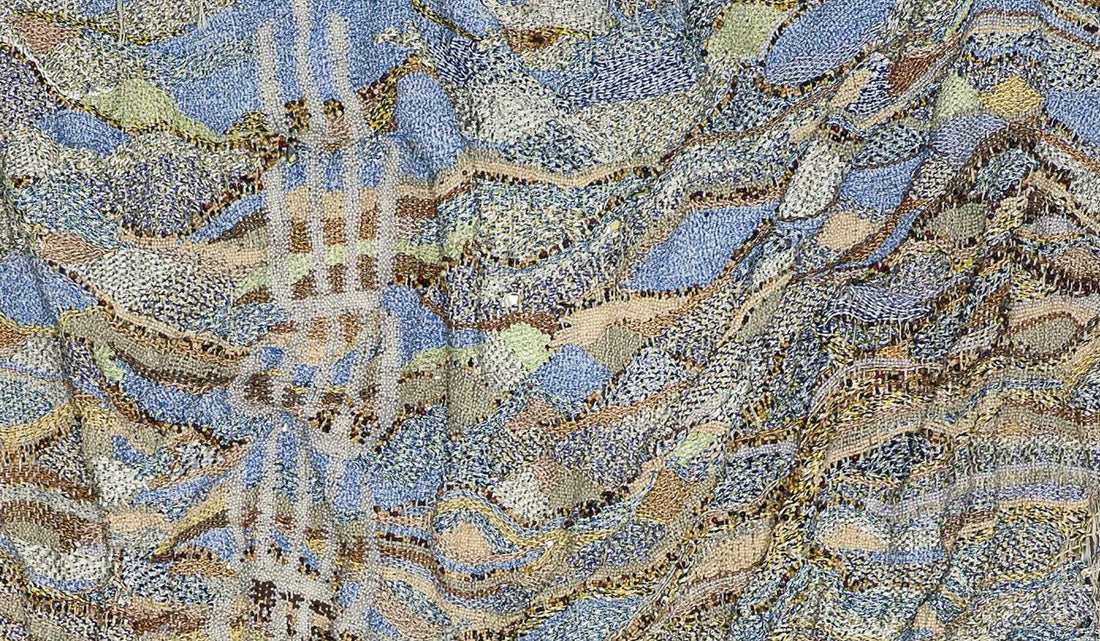
Igshaan Adams

Image: The Path of the upright (crop), 2017, Igshaan Adams
Artsy - the largest online database of contemporary art - has named Igshaan Adams as one of the The Artsy Vanguard 2020. Adams’s hanging sculptures envision how material forms, coils, separates, and becomes void. A queer practicing Muslim born in apartheid-era South Africa, Adams draws on the multiplicites of his own identity, as well as his faith, to produce intricately woven works that combine everything from standard rope and twine to wire, beads, springs, and dyeing agents, including red wine and detergents. The pieces range from obliquely religious tapestries to sinewy hanging abstractions, and the compositions often reflect the bricolage nature of their construction, with ordered patterns pierced by tectonic forms or gaps in the weave. While popular contemporary textile artists often create figurative work, Adams’s tapestries explore the representational potential of woven material itself.

Image: Akbar (crop), Igshaan Adams.
In his first solo museum exhibition in the US, running until November at SCAD, Adams lines the walls and floors of the expansive Pamela Elaine Poetter Gallery with used linoleum flooring extracted from working-class homes across Cape Town, South Africa. Within the interior of the installation lies an amalgamation of works created from large-scale sculptural weavings as well as heavily embellished two-dimensional wall hangings that map the linoleum flooring’s patterns and the pathways caused by years of foot traffic in its original setting.
The title of the show is Getuie. An Afrikaans word which directly translates as "witness." It alludes to the way in which the flooring is testament to the lives that left their marks and traces, as well as the vernacular meaning of swearing oath to the character of someone in your inner circle. Getuie is an immersive environment that speaks to Adams’ ongoing exploration of the domestic environment as a contested site where issues of race, religion, class, and sexuality intersect in both comforting and unsettling ways.
For more information visit www.scadmoa.org
